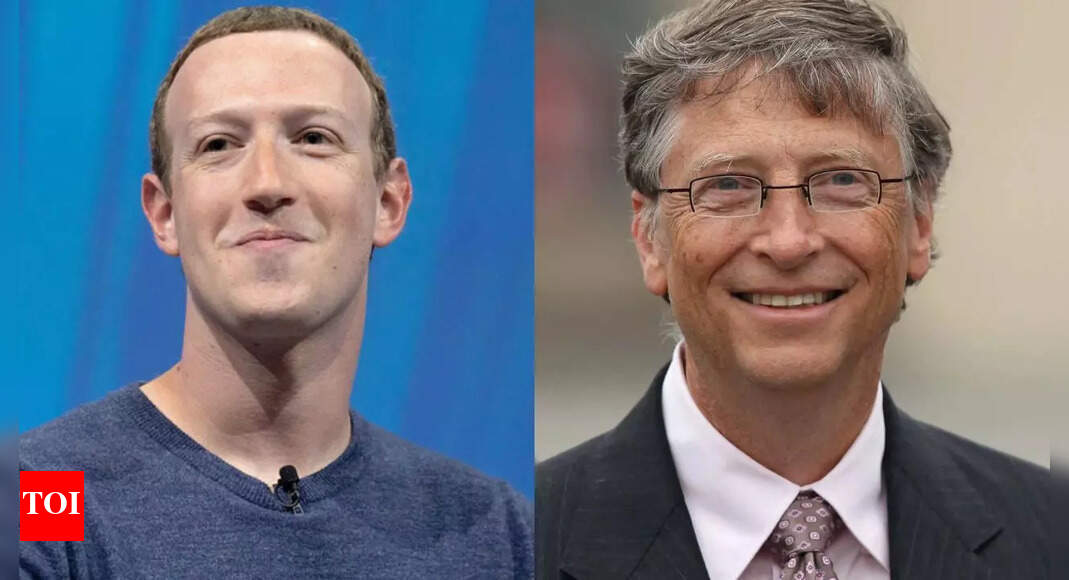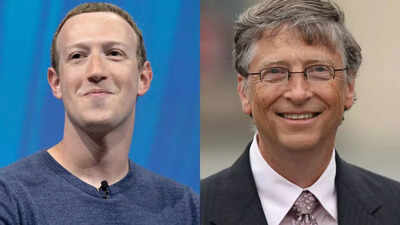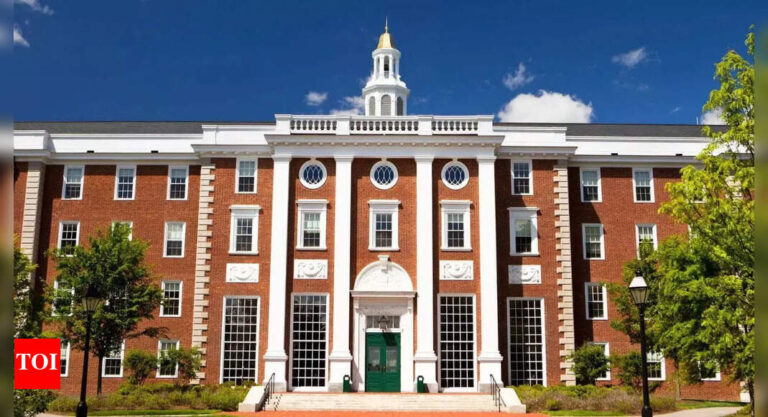
In the hallowed halls of Harvard, ambition is a given. But few stories rival the paths of Bill Gates and Mark Zuckerberg, two students who walked away from the Ivy League. Not out of failure or rebellion, but to chase visions that would eventually define the digital age. Their decision to drop out of one of the most prestigious universities in the world is now etched into tech folklore. But what really made this bold move possible? And how did it lead to the creation of Microsoft and Facebook, two of the largest tech empires the world has ever known?
The Harvard beginning
Bill Gates enrolled at Harvard in 1973. Already a programming prodigy, he initially leaned toward mathematics and even flirted with pre-law before settling into computer science. Known for his laser-sharp focus and obsession with computing, Gates spent much of his time programming on Harvard’s mainframes and exploring the emerging world of microprocessors.Mark Zuckerberg, on the other hand, arrived in 2002 with a reputation as a whiz kid from Phillips Exeter Academy. At Harvard, he pursued psychology and computer science while experimenting with social networks and data-sharing tools. In 2004, he launched “TheFacebook” from his dorm room, first for Harvard students, then quickly spreading to other campuses.In both cases, Harvard provided the intellectual environment, technical infrastructure, and peer networks that served as springboards for their ideas.
The decision to drop out: Not rebellion, but acceleration
Neither Gates nor Zuckerberg dropped out because they lacked academic ability. Gates left in 1975, during his sophomore year, after reading an article in Popular Electronics about the Altair 8800. Sensing a golden opportunity in the dawn of personal computing, he teamed up with childhood friend Paul Allen to write software for it. Thus, Microsoft was born.Zuckerberg left in 2005, a year after launching Facebook. What began as a niche platform had exploded into a social phenomenon, with rapid user adoption across major universities. With venture capital knocking and momentum surging, he chose to focus entirely on scaling the platform.In both cases, dropping out was less about leaving Harvard and more about racing toward a larger vision. The classroom simply couldn’t keep up with the market reality unfolding outside.
From dorm room projects to global powerhouses
Microsoft: Building the Operating System of the World
Founded in 1975, Microsoft revolutionised the software industry by developing an operating system (MS-DOS) for IBM PCs, followed by the launch of Windows. Gates’s strategy of licensing software, rather than selling hardware, flipped the computing model and made software the most valuable component of tech infrastructure. Under his leadership, Microsoft became a household name and one of the most valuable companies in history.
Facebook: Redefining Social Connection
By the late 2000s, Facebook had evolved from a college project into the dominant global social network. Zuckerberg’s vision of a connected world materialised through a series of expansions, acquisitions (like Instagram and WhatsApp), and innovations. Facebook (now Meta) didn’t just reshape communication, it rewired the internet around social behavior.Together, Gates and Zuckerberg helped create and define the modern digital ecosystem, shaping industries from enterprise software to advertising, communication, education, and entertainment.
Still a Harvard story
Ironically, even as dropouts, Gates and Zuckerberg are products of Harvard’s unique environment:
- Talent Density: Both met key collaborators (Paul Allen, Eduardo Saverin, Dustin Moskovitz) at or through Harvard networks.
- Freedom to Experiment: Harvard offered computing access and a culture where unorthodox projects were encouraged.
- Brand Power: Being from Harvard opened doors in the venture capital world and gave their early ideas instant credibility.
They left without degrees, but not without Harvard’s influence.
Return to campus: Full circle with honour
Both tech moguls eventually returned to Harvard, not as students, but as commencement speakers.
- In 2007, Gates received an honorary Doctor of Laws and delivered a speech on global inequality and philanthropy.
- In 2017, Zuckerberg returned to accept an honorary degree and shared reflections on purpose, risk-taking, and building meaningful communities.
Their stories became case studies in alternative pathways to success, inspiring generations of entrepreneurs and sparking debates on the value, and limitations, of formal education in fast-moving industries.
Lessons beyond the legend
While it’s tempting to romanticise the “Harvard dropout” narrative, it’s worth noting:
- Both Gates and Zuckerberg were outliers, armed with once-in-a-generation ideas, early access to tech, and support networks.
- Their departures weren’t acts of defiance, but of strategic vision.
- Their success underscores that education is more than a degree, it’s a launchpad for those who know how to use it.
For students, educators, and entrepreneurs alike, their journeys serve as a reminder: sometimes the biggest decisions aren’t about what you walk away from, but what you’re walking toward.








